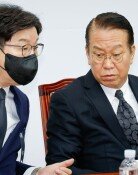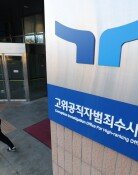Statistical Illusion
The Bank of Korea said the economy grew 7.5 percent in the first quarter year-on-year, the highest quarterly growth since 8.1 percent in the fourth quarter of 2002. The central bank also raised its forecast for this years economic growth rate from the 4.6 percent projection made in December last year to 5.2 percent.
The Chinese economy is expected to grow much higher at 9.5 percent this year, but Koreas figure is higher than that of the U.S. (2.5 percent), Japan (1.6 percent) and the euro zone (0.7 percent). The global growth forecast is also just 3.5 percent this year. Under the Roh Moo-hyun administration, Koreas growth rate stayed below the world average every year, raising doubts over the soundness of the countrys growth engines. In certain aspects, it is fortunate that the economy has recovered its growth momentum and gotten out of economic defeatism.
Yet Korea should not be fooled by this statistical illusion. Though the Bank of Korea said the economy grew 7.5 percent in this years first quarter, Koreans should remember that last years first quarter saw a contraction of 4.3 percent. Considering the base effect, the economy grew a mere 2.9 percent from the first quarter of 2008. In 2009, Koreas growth rate on an annual basis was relatively better than those of other nations, but growth for the year was just 0.2 percent. Even if growth reaches 5.2 percent this year as forecast, it is premature to fan fears of economic overheating or bubbles. This is just temporary mid growth, a phenomenon that occurs after a prolonged period of low growth.
The Korean won has strengthened to the 1,100 level versus the U.S. dollar, the level before the bankruptcy of Lehman Brothers in September 2008. The international prices of raw materials have also increased rapidly. This is putting a heavier burden on the Korean economy, which is heavily dependent on exports of products and imports of raw materials. The consumer sentiment index has declined for two consecutive months since February. Worse, the job market remains tight. Korea need not worry too much but should not gloat over its recent economic growth.
The economy had shown a stellar performance for 40 years until the Asian currency crisis in 1997. Economic growth does not solve all problems but is critical for raising income and quality of life. Considering that fiscal demand will significantly grow due to the cost of Korean reunification and the rapidly aging population, Korea needs to further increase its economic pie. Temporary economic growth that follows long-term economic growth and contraction is limited, so hastily changing the countrys growth-driven economic policy is not advisable. The Bank of Korea will eventually have to raise interest rates but carefully decide when to do so. The central bank must avoid pouring cold water on the nascent economic recovery.







